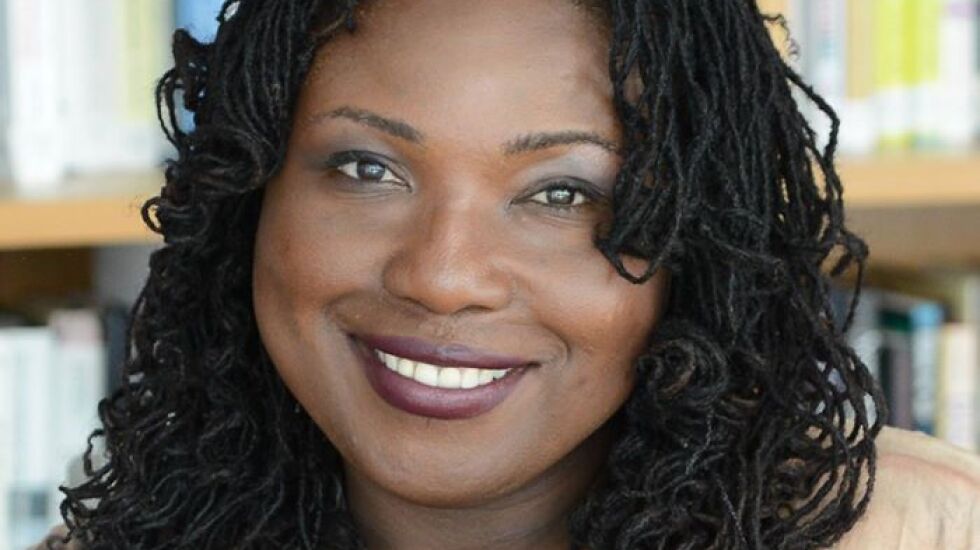
The children’s books section at the Lincolnwood Public Library has become the most contentious space in the building.
In the past year, some parents have wanted titles removed from the library, according to Josephine Tucci, the library’s director. Others come to library board meetings and suggest moving books out of sight of kids,
“No matter which shelf — and we only have three shelves,” Tucci said. “I’m short, and they come up basically to almost my shoulder. So there is nowhere to put these books in question.”
First, it was “The Hips on the Drag Queen Go Swish, Swish, Swish” by Lil Miss Hot Mess, a book that plays off the children’s song “The Wheels on the Bus.” Since a librarian read it to kids at a story time at a park last summer, Tucci said some parents have been trying to get it banned.
Separately, a parent asked the library to remove “Johnny the Walrus” by Matt Walsh, a book allegorically comparing being transgender to pretending to be a walrus.
And stories like “The Bare Naked Book” by Kathy Stinson also keep coming up at board meetings.
“It shows people from the waist up and different body types,” Tucci said of that book. “And they’re naked from the waist up. Some of our more conservative families felt that was a really inappropriate illustration to have in this book.”
Tucci insisted on keeping all three titles in the space, and they remain available to be checked out.
“The First Amendment is a double-edged sword,” Tucci said. “And it’s being used as a sword right now. Instead of a right, it’s used almost as a weapon to silence other people. And that is very worrisome. Most people still think of libraries as a place with books, you can hang out, it’s quiet. That’s not what libraries are anymore. Now, they’re becoming a battlefield for the First Amendment.”
Libraries have often been battlegrounds for freedom of speech.
Last year, the Downers Grove high school board unanimously voted to keep “Gender Queer,” an autobiographical graphic novel about nonbinary author Maia Kobabe’s journey of gender identity as a teenager and young adult in school libraries after parents and members of the far-right Proud Boys group objected.
Such fights are why the Chicago Public Library introduced and is promoting the idea of book sanctuaries — spaces where books of all kinds are protected and made accessible to all. Chicago hasn’t faced any battles over which books to make available, so library Commissioner Chris Brown said the city library system has more freedom to respond to the issue than many. He said any place can be a book sanctuary.
“It can be in your house, it can be in a community center, it can be in a school and also a library,” Brown said.
People seem to be catching on to the idea. Brown said more than 1,300 people viewed and downloaded materials that the Chicago library system first made available online last fall to help them get started. The library isn’t keeping track of who is downloading the kits. He said protecting challenged titles is part of the legacy of Chicago’s libraries.
“We had vanguard librarians like Charlemae Hill Rollins, who in the ‘40s was writing letters to the American Library Association, saying, ‘We need more representation in our children’s books for African American kids,’ ” Brown said.
According to the library association, which is based in Chicago, there were 67 attempts to ban books last year in Illinois, up from 41 such efforts in 2021. It says the number of book ban attempts has been on the rise in recent years, with 681 such moves involving more than 1,600 titles throughout the United States in 2021.
That’s the most attempts the association has seen since it began tracking these numbers 20 years ago. According to ALA statistics, 44% of challenges to books happen in school libraries and 37% in public libraries, with sexually explicit material the No. 1 reason cited.
Tracie Hall, executive director of the library association, said the rise in book-banning efforts could be due to an increasingly polarized political climate nationwide. She said there’s a focus on books representing the lives and experiences of people of color and LGBTQ+ people.
“The way that power is hoarded, sometimes the way reading is politicized is an attempt to get to something that’s much deeper than just a joy of reading,” Hall said. “It’s really trying to restrict political, economic and social access.”

Half of the titles on the association’s latest ”Top 10 Most Challenged Books list” — published in 2021 — were banned for LGBTQ+ content.
Hall said people advocating censorship are weakening democracy.
“Reading continues to occupy a central place in our lives and how we form opinions.,” she said. “That is why I think books and literature are being called out — because they are still today how we form opinions that really inform the way that we think.”
Lindsey Dorman, director of the Glenview Public Library, said providing a variety of viewpoints is important and that Glenview hasn’t made itself a book sanctuary because there hasn’t been a need.
“The community understands that there are going to be different viewpoints,” said Dorfman, who wants to fight censorship by showing people how and why the library buys materials.
“One of our talented e-services librarians also created a class for parents to teach parents about different tools that they can use to find books that are right for their children,” Dorfman said.

During “Banned Books Week” last year, parents in that class were shown how to look up professional reviews for different books and how to see whether books have won awards.
After the class was offered, more library patrons started to ask about the materials discussed, according to Dorfman, who said the Glenview library hopes to host a similar workshop this year.







